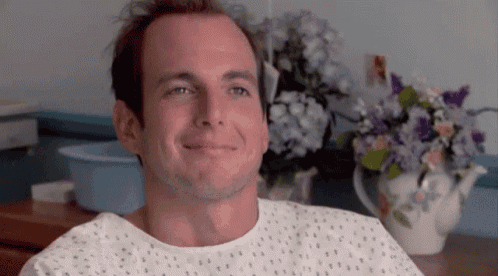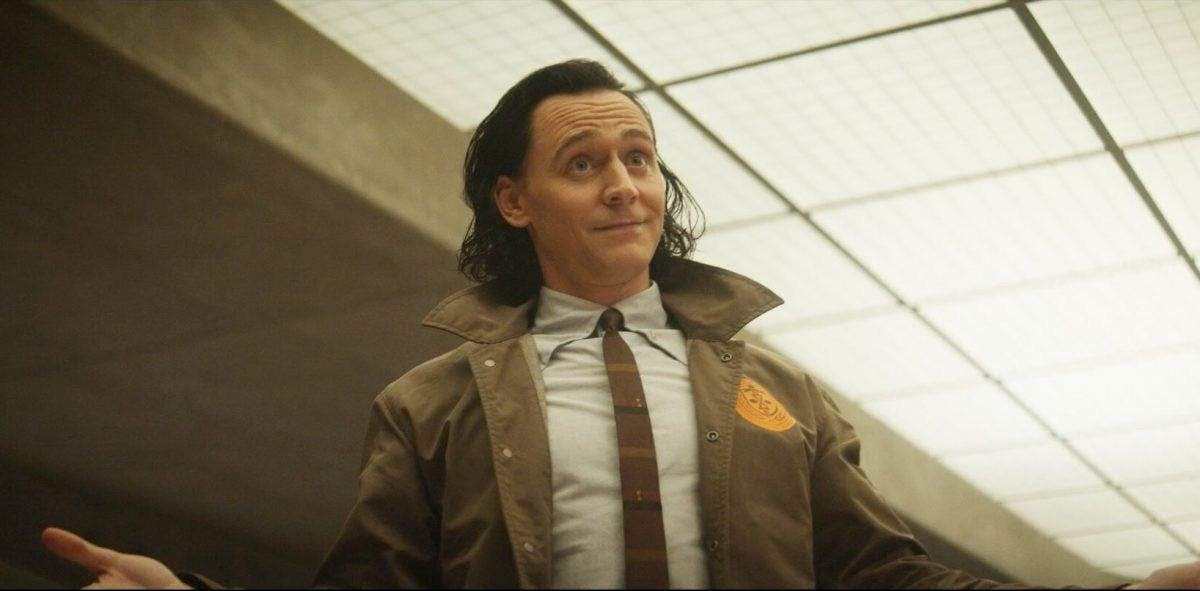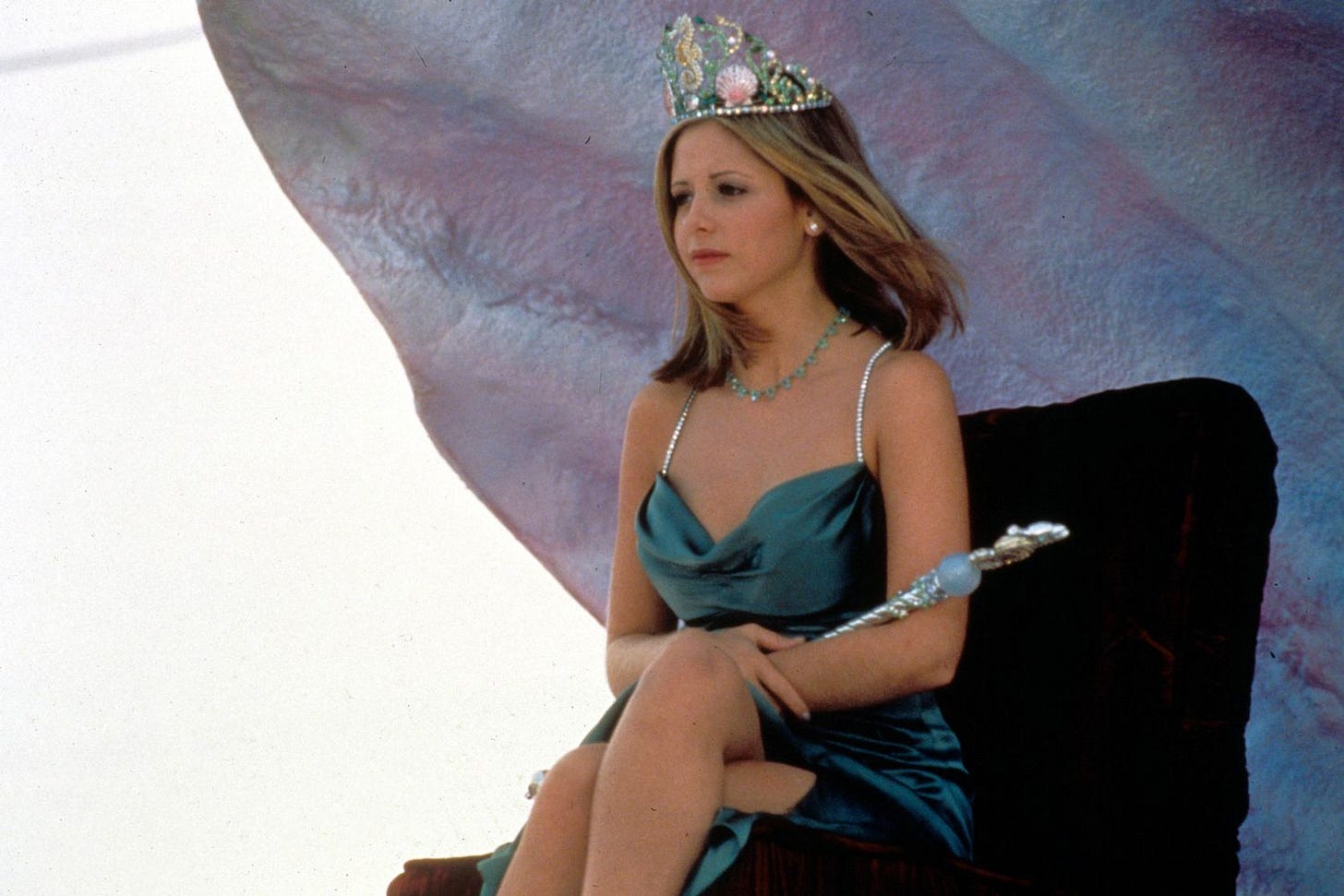I Know What You Did Last Summer has an objectively awesome title, and a hell of a high-concept premise: four carefree teens accidentally kill someone and clumsily dispose of his body, only to be haunted by their misdeed—and possibly a vengeful ghost—one year later. The original movie is by no means a classic, but I think it deserves a better legacy than as an also-ran to Scream. And it definitely deserves a better legacyquel than the 2025 misfire that just limped into theatres. There was so much wrong with this movie—random, unmotivated shots; dialogue so clunky that my poor movie-going partner kept asking whether it was written by ChatGPT1—that we simply do not have the time or space to get into it all. Instead, I want to focus on one massive, baffling mistake.
In the original, our fearsome foursome are speeding down a twisty road, drunk on alcohol and also their bright futures. Distractingly pretty Freddie Prinze, Jr (who is sober) gets distracted himself, and slams into a man walking in the middle of the road. The four decide—one more reluctantly than the others—to dump the man’s body in the ocean, so they won’t have to live with the consequences of one mistake for the rest of their lives. Of course, since this is a horror movie, the consequences of this decision doom most of them to have much shorter lives. And one thing the movie does surprisingly well is convey how everyone’s guilt has sobered them. One year later, all four of them are visibly diminished, and incapable of moving on.
This new movie decided to bump all of that. This time, the Ryan Phillippe type2 is sillybillying in the middle of the road, and a car crashes into the cliffside guardrail when the driver swerves to miss him. The teens immediately rush to his aid, to the point of straining to physically pull the car back onto the road, but then accidentally drop him to his death. This is genuinely heroic behavior! But their crime—deciding not to call 911, and ultimately to pretend it never happened—is a profoundly confusing one that makes them all seem more stupid than selfish.
Wanting to avoid manslaughter and DUI charges makes a lot more sense than wanting to avoid, essentially, one night of interviews from police who are inclined to believe and protect rich townies. In the attempt to make these protagonists less actually culpable, the movie makes them less credible as human beings who could exist in the world.
So like. This is facially incompetent storytelling. But it’s also not a storytelling choice that the filmmakers made in a vacuum. In the same way that the other legacyquel to a Ryan Phillippe/Sarah Michelle Gellar joint struggled to adapt the source material’s inherent unsavoriness, I Know What You Did Last Summer is dealing with an entirely different moral vibe than it would have in 1997, or even 2007. We’re no longer in the heyday of morally gray antiheroes. We are now pretty snugly ensconced in a black-and-white morality era. Audiences seem to want their protagonists suitably heroic, and their antagonists drably villainous or abstract. Like Miss Prism, they want their fiction with the good ending happily and the bad unhappily. Even movies with villain protagonists, like the seemingly endless stream of childhood story prequels, are determined to turn the villain into a misunderstood snarker with a heart of gold.
This appetite for narrative simplicity would be fine on its own, I guess. Desperately boring, but fine. Except that appetite doesn’t end with art, does it? These same audiences seem to want that kind of simplicity in their real lives as well. Anyone who becomes a public figure, either intentionally or by happenstance, becomes subject to the same moral binary: everything they say and do is either charming and righteous, or problematic and malign. Social media relationship advice demonizes favours like picking someone up from the airport or helping someone move as “unpaid emotional labour,” and glorifies cutting prospective dates off for not meeting completely unspoken expectations. None of this is credible human behavior either. Not for humans who want to be part of a society, at least.
I’m absolutely guilty of being one of those “community is what will save us” people, because I really do believe that! And I also really do believe that, since community comprises people and not blameless vestals, we have to be willing to accommodate said people when they make mistakes, or act foolishly, or just get on our nerves. We have to be willing to have actual conflict in our relationships and in our art.
We have gotten a few good horror legacyquels in the last several years. Halloween (2018) rather kicked off the whole “re-evaluating the original narrative with a trauma-informed lens” trend that failed to catch on after Halloween: H20 tried it 20 years earlier. 2022’s Prey is my favourite Predator sequel by a Cuban mile, thanks to a vividly badass lead and a really engaging new context. And, inevitably, there’s the franchise in whose shadow IKWYDLS has always lived. SCREAM (2022) ably succeeded at nailing its specific zeitgeist in a way that even the earlier entries in the franchise could not. And it did so with some very credibly human teens at its center, who created a real sense of family and community amidst all the quips, bloodshed, and regrettably human mistakes3. It’s a shame that this rivalry had to end this way. The Croaker Queen deserved better.
Tragically, this is the same friend who took me to the pathetic new Captain America, and who I honestly asked “is this an advance cut?” because everything looked so bad. All of this to say, the two of us are officially in a bad movie streak.
Played this time around by someone who is convincing as a future pro football player; offense intended, Phillippe!
As well as one regrettable digital de-aging mistake that rendered certain characters much less credibly human. I can admit that now.









Yes. The desire for moral simplicity began with George Lucas's crime in making Greedo shoot first. And then re-engineering it over and over again in response to outcry. I blame him.
I love your writing, I love your thoughts on the weird movie moment we are in,
and I love your commitment to Arrested Development GIFs.